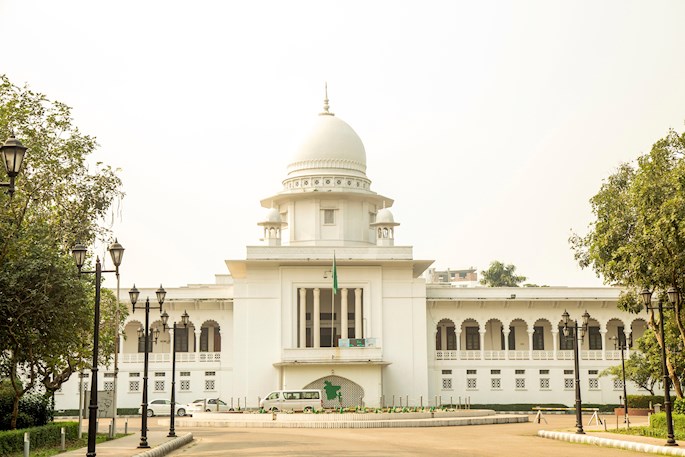Quicker with justice
Bangladesh conducts express trials in rape cases
Published : 11 Dec 2020, 12:14
The recent widespread outrage against the high level of sexual violence targeting women in Bangladesh has forced the authorities to conduct faster trials of rape cases in a country known for sluggish judiciary .
The courts have begun delivering quicker verdicts, some even in less than a week, which would earlier take years of stagnation.
Public prosecutor Mahmuda Akter was racing against time with her team, attending hearings of at least a dozen cases in a Women and Children Repression Prevention Tribunal in Dhaka on Dec 3.
In one such case, she successfully opposed the bail of Shah Alam Bepari, who allegedly raped his stepdaughter on Sep 14 last year in their Dhaka home.
Khadiza Begum, the mother of the 11-year-old victim, filed the complaint against her husband.
The case has progressed rapidly since the courts resumed operations in August following the pandemic interruption in late March, with three hearings in 35 days.
“We are trying to dispose of rape cases on a priority basis. Every day, we have several cases for hearings. Today, we also had 12 cases. Most of them are rape cases,” the public prosecutor told EFE.
Bangladesh courts moved fast to complete trials in rape cases after the country saw massive protests in October in the wake of several incidents of sexual abuse.
Protests began after a video showed a group of men sexually assaulting a woman in the southern district of Noakhali.
Following the protests, the government on Oct 12 amended a law introducing death for rape.
Some courts, in reaction to social pressure, speeded up judicial processes and also disposed of rape cases quicker than expected.
On Oct 19, a court in southern Bagerhat district sentenced a man to life for raping a seven-year-old, just a week after the trial began.
A month later, a court in the northeastern district of Kushtia delivered its verdict in just three working days on Nov 17 in what local media said the fastest disposal of a rape case in the country.
Prosecutor Anup Kumar Nandi said the court sentenced the head of a religious seminary, Abdul Quader, to life in prison for raping a female student on Oct 4.
“The court gave the verdict maintaining all procedures. The verdict came in three days from framing charges. It is a historic and landmark verdict,” Nandi told EFE.
Quader’s lawyer Arshad Ali claimed that the court did not give him enough time to defend his client.
Ali said the judiciary, in his case, did not follow the procedure laid down by the high court.
“There should have been a DNA test. But if the guidance is not followed what can we do, we cannot fight,” Ali said.
“The investigation was not proper. No DNA test, no chemical test of the victim’s clothes, the medical report said no recent rape. It was not in 72 hours. We got one day to cross-examine the witnesses,” he said.
Prosecutor Nandi, however, claimed that the court convicted Quader based on his confessional statement, which he did not retract.
The express trial came against a history of the long-drawn-out criminal cases in the country.
Rights Group Amnesty International in October reported that only 3.5 percent of cases of violence against women and children filed between 2001 and July 2020 had resulted in court judgments. Only 0.37 percent of them ended in convictions.
“My considered view is that if the verdict is given too fast the chance of injustice remains high,” said senior Supreme Court lawyer Jyotirmoy Barua.
“The instances that are being created by giving a verdict in three days, seven days or 11 days, they are alarming. It is alarming because if the defence is not given enough time to defend the verdict may not sustain in appeal courts,” he said.
Barua, who is also a human rights defender, argued that an express trial is harmful to both the accused and the victim because it could create a sense of denial of justice.
“We have an instance of getting the verdict in 30 years after the incident only two months ago in Cumilla… excessive delay creates a prejudice. At the same time if the victim does not get any justice at all for hurrying the trial that is also useless,” he said.
“In the judicial process, there is no scope of considering public opinion. You will give verdict from an objective position, it does not matter what the public says. Public opinion is not always correct."
Student leader Anik Roy, who led one of the recent protests, said an express trial was not what they wanted.
“Our demand was the reform of the law. It is also important to reduce the time in delivering the verdict. But we do not want to see any show-off,” he said.


